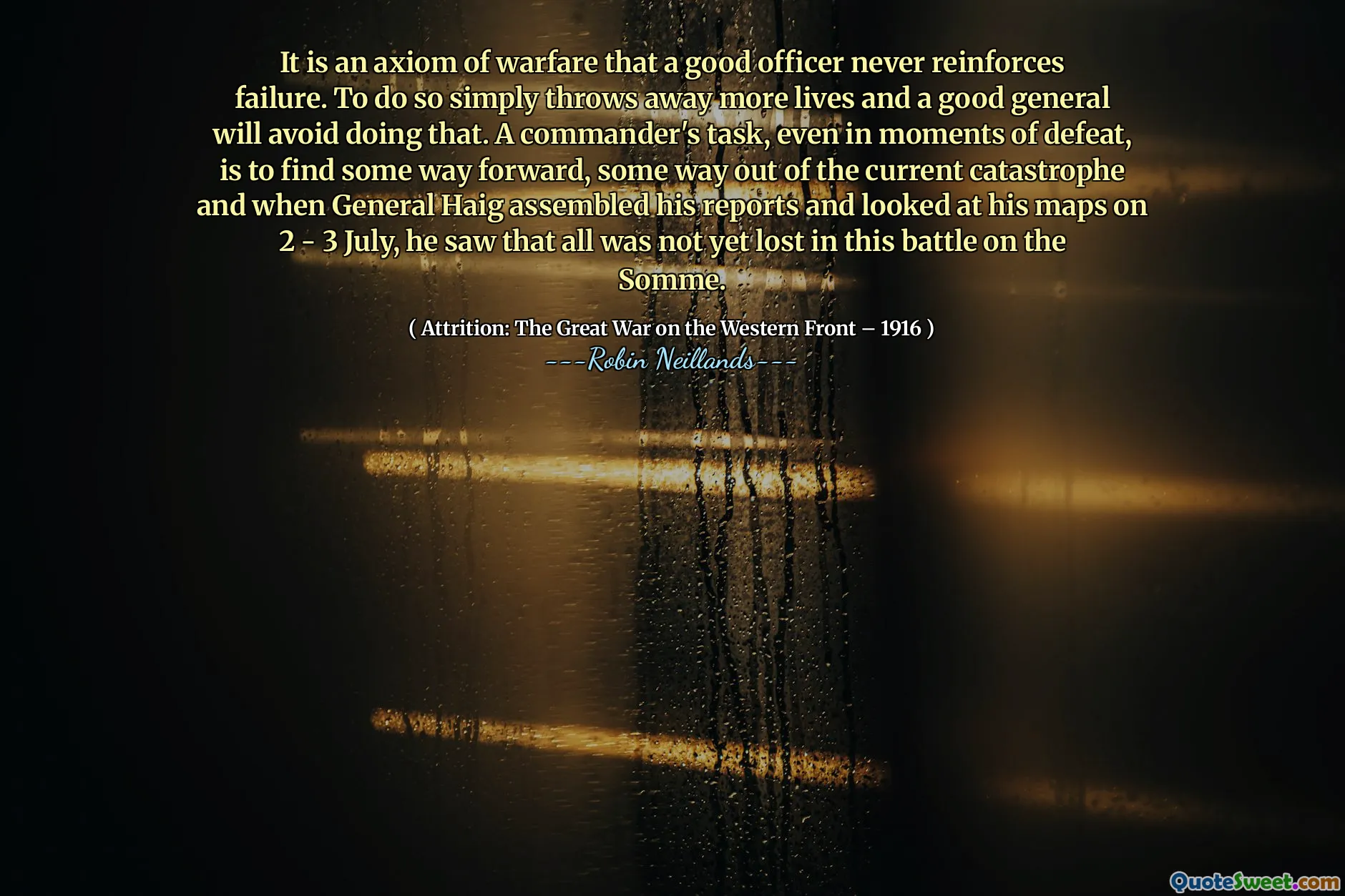
It is an axiom of warfare that a good officer never reinforces failure. To do so simply throws away more lives and a good general will avoid doing that. A commander's task, even in moments of defeat, is to find some way forward, some way out of the current catastrophe and when General Haig assembled his reports and looked at his maps on 2 - 3 July, he saw that all was not yet lost in this battle on the Somme.
This quote underscores the importance of strategic resilience and adaptability in warfare. It highlights that a competent military leader does not persist with futile tactics or continue reinforcing mistakes that lead to failure, because doing so results in unnecessary loss of lives and resources. Instead, a skilled commander seeks innovative solutions and maintains hope even during periods of apparent defeat. The emphasis on finding a way forward illustrates the essence of effective leadership: maintaining focus on the ultimate objective while reassessing tactics in response to evolving circumstances. The reference to General Haig’s assessment during the Battle of the Somme serves as a reminder that even in one of the largest and bloodiest battles of World War I, the leadership remained committed to continual evaluation and adaptation. It encourages a mindset that refuses to accept catastrophe as final, promoting the idea that circumstances can change and that perseverance and strategic flexibility are crucial. This lesson is not only relevant in military contexts but also for any situation dealing with adversity or complex challenges, emphasizing the importance of judgment, resilience, and hope in overcoming obstacles and turning situations around.






